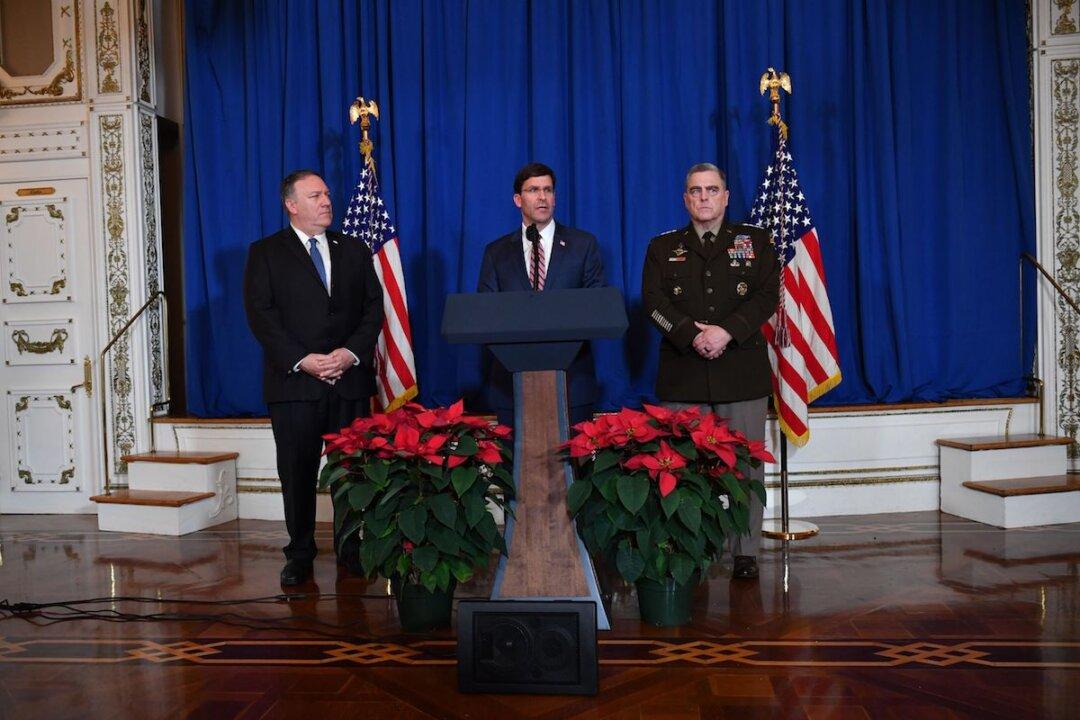Secretary of State Mike Pompeo spoke on the phone with the state heads of Saudi Arabia, Israel, and the United Arab Emirates (UAE) on Dec. 30, a day after the United States conducted defensive strikes, including on the headquarters of the Iran-backed Hezbollah Brigades terrorist group.
The Sunday strikes on Kata’ib Hezbollah targets in Iraq and Syria were conducted two days after a civilian U.S. defense contractor was killed in a rocket attack on a northern Iraqi military base. Officials said as many as 30 rockets were fired in the assault.





